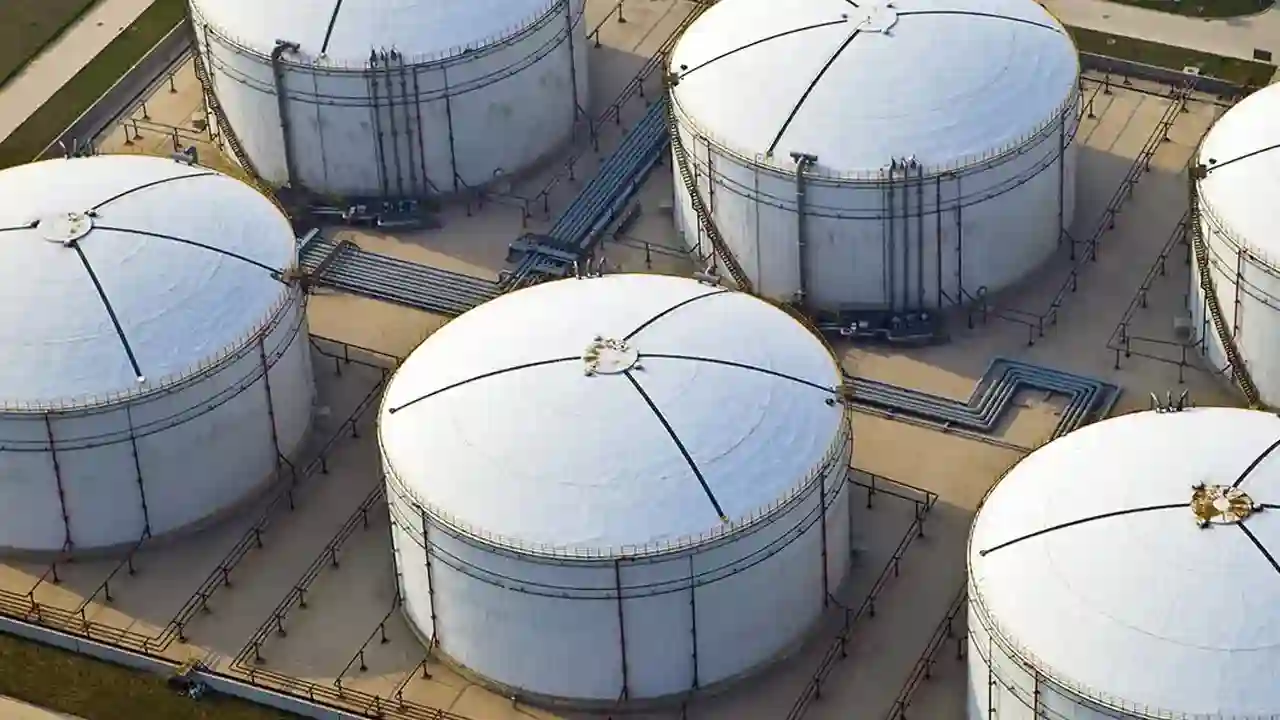
Industrial tanks play a critical role in various sectors, serving as storage vessels for liquids, gasses, and solid materials. From chemical processing to water treatment and food manufacturing, these robust containers are designed to withstand extreme conditions and ensure safe storage. This blog post explores the diverse types of industrial tanks, each tailored for specific applications. We'll delve into the unique features, construction materials, and applications of atmospheric tanks, pressure vessels, cryogenic tanks, and more. Understanding the capabilities and limitations of each tank type is essential for selecting the appropriate solution that meets industry regulations, efficiency requirements, and safety standards.
Different types of Industrial Tanks
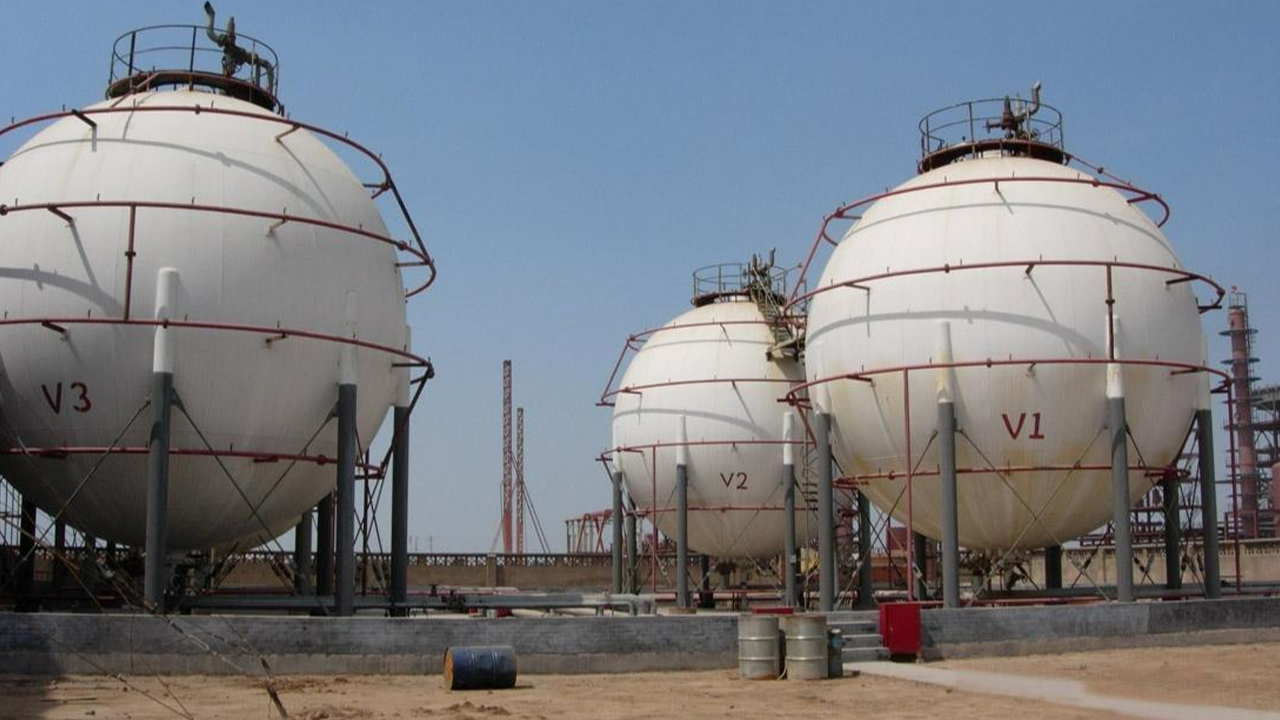
Here's an overview of different types of Industrial Tanks:
- • Tank manufacturers in UAE produce a wide range of industrial tanks designed to meet various storage and processing needs across multiple industries.
- • Storage tanks are among the most common types of tanks manufactured, used for storing liquids, gasses, and other materials.
- • Pressure vessels are specialized tanks built to withstand high pressures, commonly used in chemical processing, oil and gas, and power generation industries.
- • Cryogenic tanks are insulated tanks designed to store liquefied gases at extremely low temperatures, crucial in industries like energy, healthcare, and research.
- • Tank suppliers in UAE and other regions offer a diverse range of storage solutions, including atmospheric storage tanks, bullets, spheres, and horizontal tanks.
- • Tank manufacturers and suppliers cater to various industries, such as oil and gas, chemical, water treatment, food and beverage, pharmaceutical, and more, providing customized tank solutions.
- • In the oil and gas sector, tank manufacturers supply specialized tanks like floating roof tanks, fixed roof tanks, and bullet tanks for storing crude oil, refined products, and petrochemicals.
- • The water treatment industry relies on tank manufacturers for potable water storage tanks, process tanks, clarifiers, and other specialized tanks used in water purification and distribution systems.
- • Pharmaceutical and biotech companies require tanks from reputable suppliers for storing and processing various liquids, gases, and other materials used in drug manufacturing and research.
- • Tank manufacturers and suppliers also serve the food and beverage industry, providing tanks for storing and processing ingredients, beverages, and other food products while ensuring compliance with stringent hygiene and safety standards.
Tank Applications and Industries
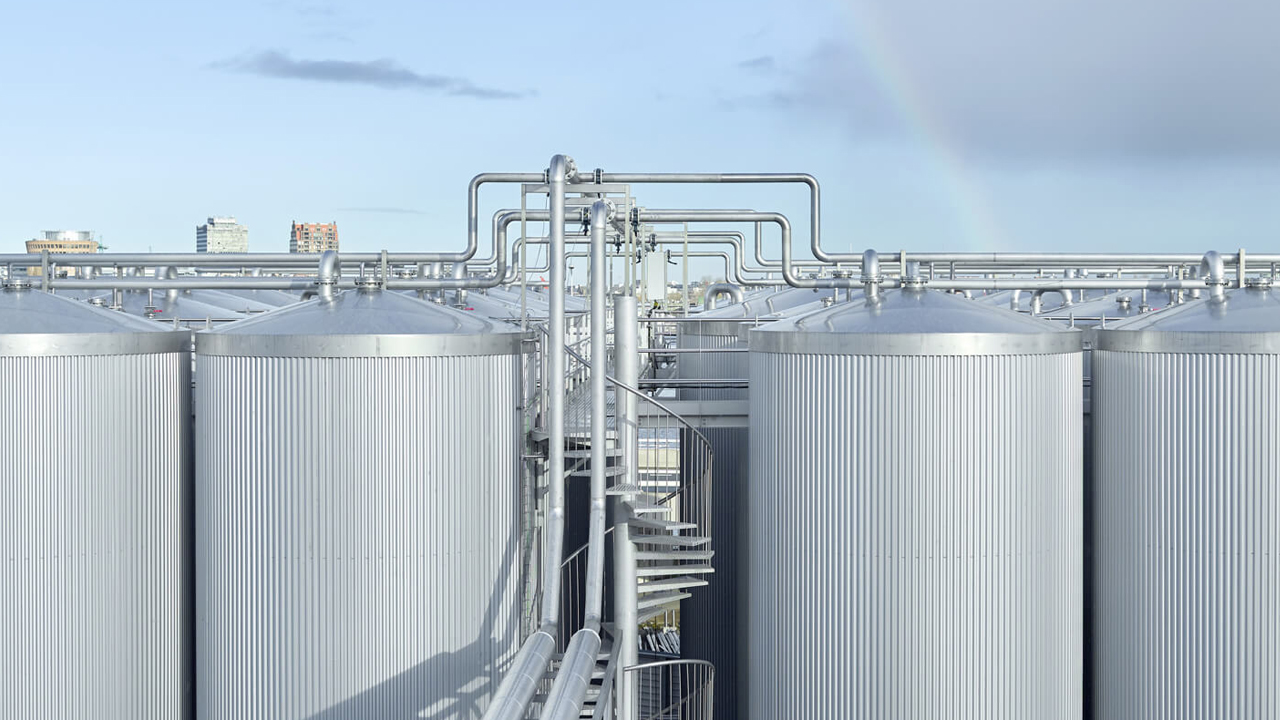
- • Chemical Industry: Tanks, including atmospheric storage tanks, pressure vessels, and specialized tanks, are widely used for storing chemicals, solvents, and other hazardous materials.
- • Oil and Gas Industry: Various types of tanks, such as atmospheric storage tanks, pressure vessels, and cryogenic tanks, are employed for storing and transporting oil, gas, and related products.
- • Food and Beverage Industry: Storage tanks are commonly used for storing liquids like water, juices, milk, and other food-grade liquids, ensuring safe and hygienic storage.
- • Water Treatment and Distribution: Tanks play a crucial role in storing potable water, wastewater, and other liquids involved in water treatment processes, ensuring a reliable supply of clean water.
- • Pharmaceutical and Biotechnology Industries: Tanks are employed for storing solvents, reagents, and other liquids used in the manufacturing of pharmaceuticals and biotechnology products, adhering to strict quality standards.
- • Power Generation: Tanks are used for storing fuels, coolants, and other liquids required in power plants and related facilities, ensuring smooth operations.
Tank Materials and their Suitability
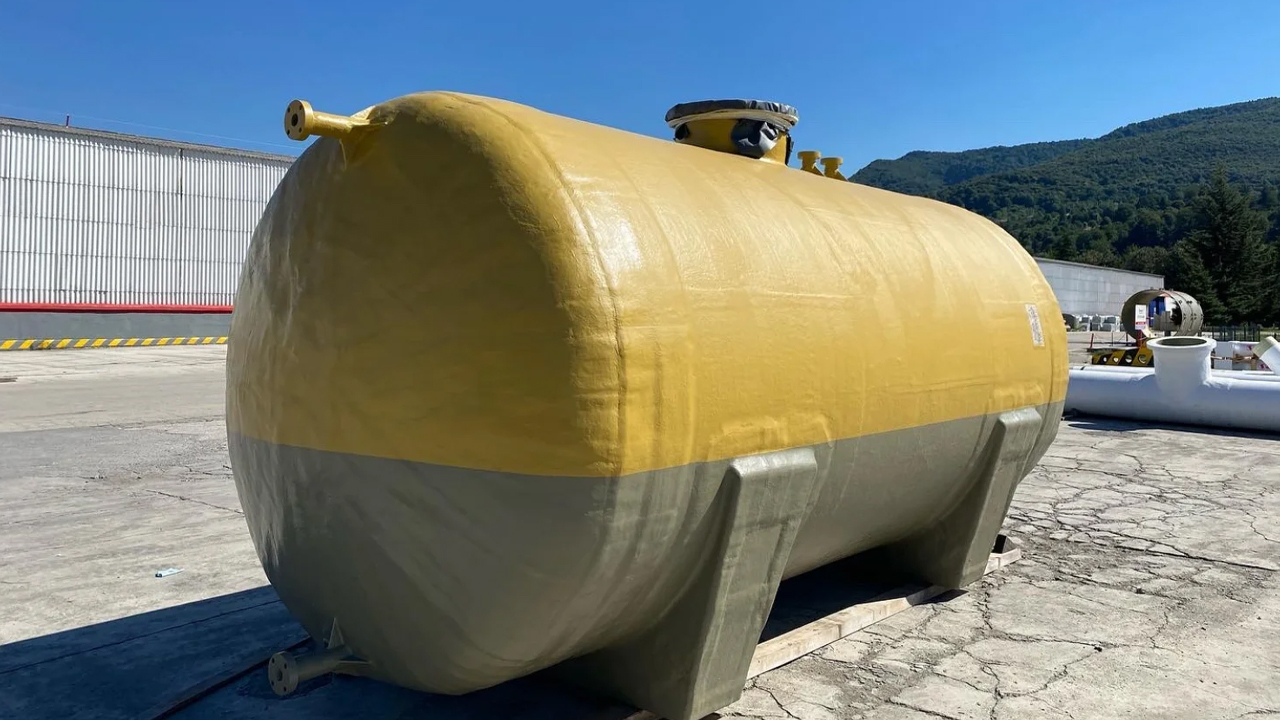
- • Steel: Steel is a commonly used material for industrial tanks, especially storage tanks, pressure vessels, and cryogenic tanks. It offers high strength, durability, and resistance to corrosion, making it suitable for storing various liquids and gasses.
- • Fiberglass: Fiberglass tanks are lightweight, corrosion-resistant, and often used in the chemical industry for storing mild acids, alkalis, and other corrosive materials. They are also suitable for water treatment applications.
- • Plastic (polyethylene, polypropylene): Plastic tanks are lightweight, cost-effective, and resistant to many chemicals. They are commonly used in the food and beverage industry, as well as for storing water and other non-corrosive liquids.
- • Stainless Steel: Stainless steel tanks are highly resistant to corrosion and are often used in the pharmaceutical, biotechnology, and food industries where hygiene and cleanliness are crucial. They can withstand harsh cleaning processes.
- • Concrete: Concrete tanks are durable and often used for underground or partially buried storage of water, wastewater, and other non-corrosive liquids. They offer cost-effective long-term storage solutions.
Factors to Consider When Choosing a Tank
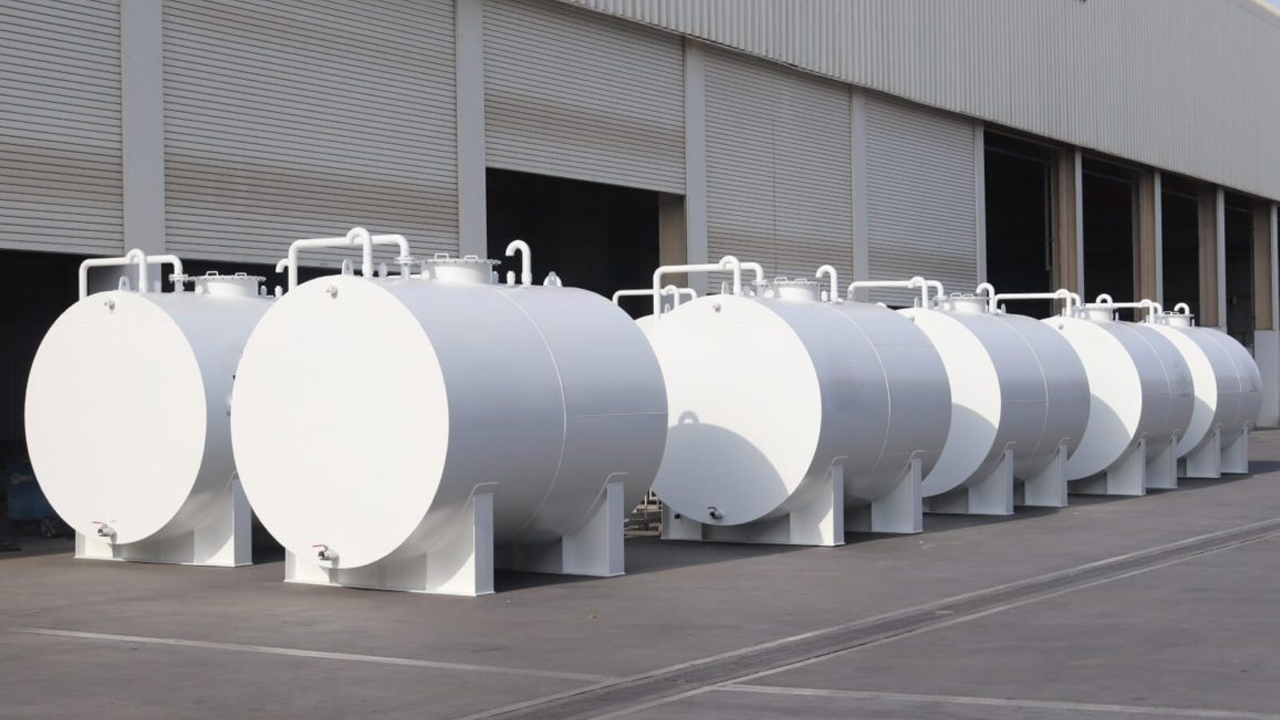
- • Capacity: The required storage capacity is a crucial factor when selecting a tank. Tank manufacturers and suppliers offer a range of sizes for storage tanks, pressure vessels, and cryogenic tanks to meet diverse needs.
- • Pressure Rating: For storing gases or liquids under pressure, pressure vessels with appropriate pressure ratings must be chosen. Tank suppliers provide options for different pressure requirements.
- • Insulation: Certain applications, such as storing cryogenic liquids or materials that require temperature control, necessitate insulated tanks. Cryogenic tanks and specialized industrial tanks offer insulation capabilities.
- • Material Compatibility: The tank material must be compatible with the substance being stored to prevent corrosion, chemical reactions, or contamination. Tank manufacturers offer different materials like steel, fiberglass, and plastics for various applications.
- • Temperature Range: The operating temperature range is an important consideration, especially for storing materials at extreme temperatures or in harsh environments.
- • Safety and Regulatory Compliance: Industrial tanks must comply with safety standards and regulations specific to the industry and the materials being stored. Tank suppliers ensure their products meet these requirements.
- • Accessories and Features: Additional features like venting systems, level indicators, and heating/cooling systems may be required, depending on the application. Tank manufacturers provide customization options.
Conclusion
Industrial tanks are vital components in various sectors, ensuring safe and efficient storage of liquids, gases, and solid materials. From atmospheric storage tanks to pressure vessels and cryogenic tanks, each type is designed to meet specific requirements. Selecting the appropriate tank involves careful consideration of factors such as capacity, pressure rating, insulation needs, and material compatibility. Tank manufacturers and suppliers offer a wide range of options tailored to different industries, including chemical, oil and gas, food and beverage, water treatment, and more. By understanding the diverse tank types, applications, and selection criteria, businesses can make informed decisions to optimize their operations, enhance safety, and comply with relevant regulations. Proper tank selection is crucial for ensuring smooth and sustainable operations across industries. Want to know more about tanks read our previous blog "Introduction to Tank Manufacturing".
